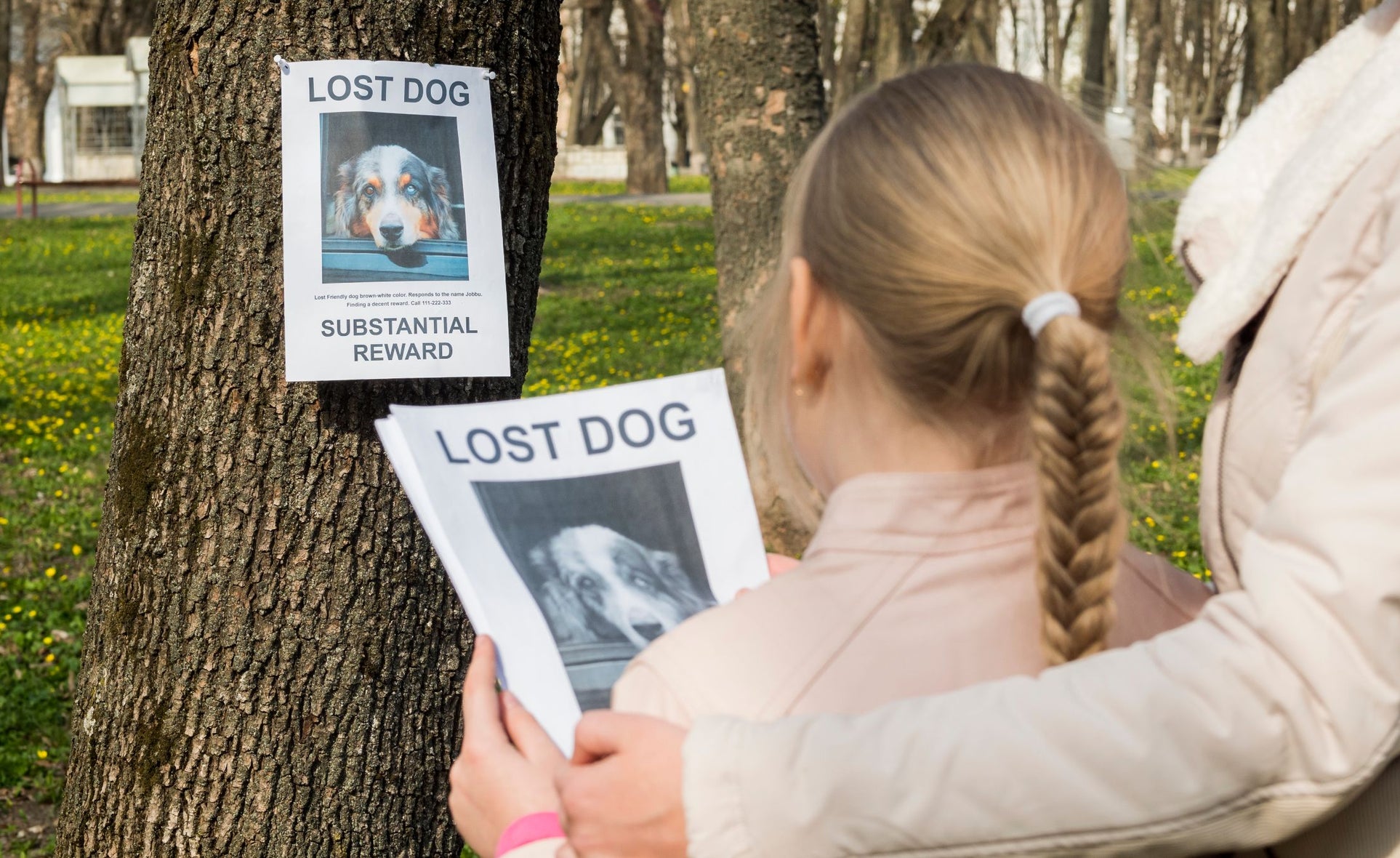
Protect Your Pet From Getting Lost
July 02, 2022July is National Lost Pet Prevention Month, and it's a good time to discuss ways to keep your furry friends safe. According to the American Humane Society, approximately 10 million pets are lost each year, and millions of those enter animal shelters yearly. Unfortunately, 15% of dogs and 2% of cats that aren't microchipped get returned home, and nearly half of them are euthanized because the shelters run out of room.
One of the biggest fears of a pet owner is losing your pet. The best way to avoid this tragedy is by taking steps to prevent your pet from getting lost in the first place. Here are some tips to keep your pets safe and prevent them from getting lost.
Make Sure Your Pet is Registered!
When you first get your pet, you'll want to visit the vet and have them examined, vaccinated, and registered. The importance of getting your pet registered can't be overstated. A registered pet is more likely to be returned to its owner if they're lost.
Make Sure Your Pet Has Proper identification
Every pet should have some form of identification, even if they're always indoors. The most important thing is that their identification has your current contact information. That way, whoever finds them can reach you and return your pet safely home if your pet does get out.
There are a few different types of identification for pets:
- Microchips:

A microchip is a tiny chip implanted under your pet's skin. The chip contains your contact information and can be read by a special scanner. If your pet is ever lost, any animal shelter or vet office will have the ability to scan your pet and call you immediately to come and pick up your pet.
Microchipping is a straightforward and pretty much painless procedure. It's also inexpensive, costing around $50.
- Collars and ID tags:

Another way to identify your pet is to put a collar on your pet with an ID tag with your contact information. This is the most basic form of identification, but it's likely to fall off or be taken off. If you choose this method, ensure the collar is tight enough and the ID tag securely attached. You should also consider getting a backup ID tag in case your pet loses one.
- GPS trackers:
For extra protection, you can get a GPS tracker for your pet. These devices attach to your pet's collar and are linked to your phone. If your pet gets lost, you can track their location and bring them home safely. GPS trackers can be expensive, but they're worth the peace of mind, especially if you have an escape artist.
Current Vaccinations
Keep your pet's vaccinations current and take them to the vet for regular checkups. This will help ensure that they're healthy and won't get sick if they come in contact with other animals.
Check Fences and Gates
Before letting your pet outside, ensure that all fences and gates are secure. This will help prevent them from getting out and getting lost.
If you follow these tips, you can help prevent your pet from getting lost. Lost pets are a serious problem, but with a little bit of prevention, you can keep your furry friend safe.
Spay or Neuter Your Pet
Spay or neutering your pet also helps to reduce the likelihood of them running away or getting lost. They're less likely to roam in search of another pet ready to mate if they're spayed or neutered.

July is National Lost Pet Prevention Month, and it’s a great time to ensure your pet is registered with microchip identification and up-to-date on all vaccinations. In addition, be sure to have an appropriate collar and leash for walks, and keep your pet indoors or in a fenced yard when you can’t watch them. Finally, spay or neuter your pet to help keep them from roaming. These simple steps will help reduce the chances of your furry friend getting lost. Have you ever had to search for a lost pet? What tips would you add? We’d love to hear from you.
